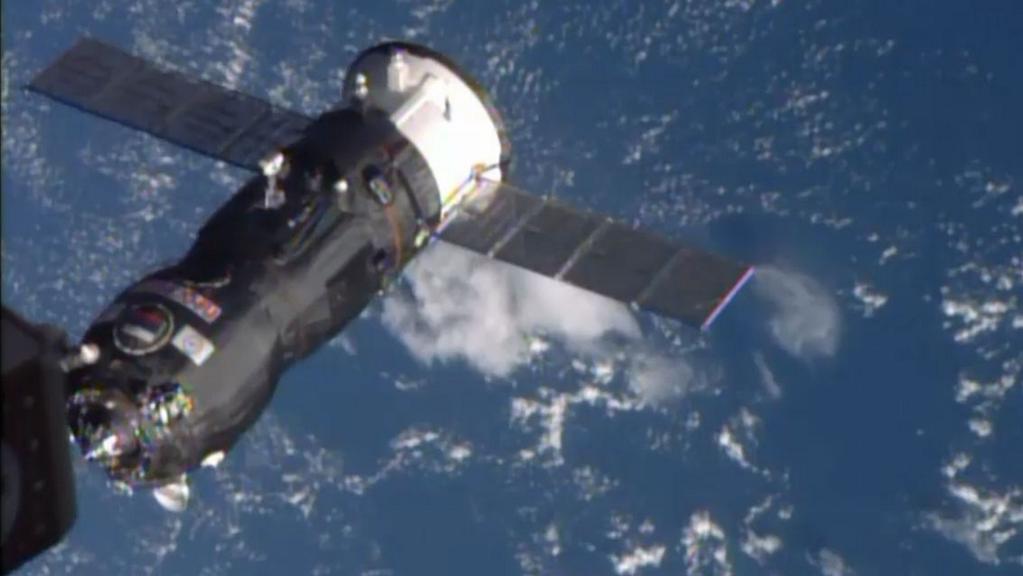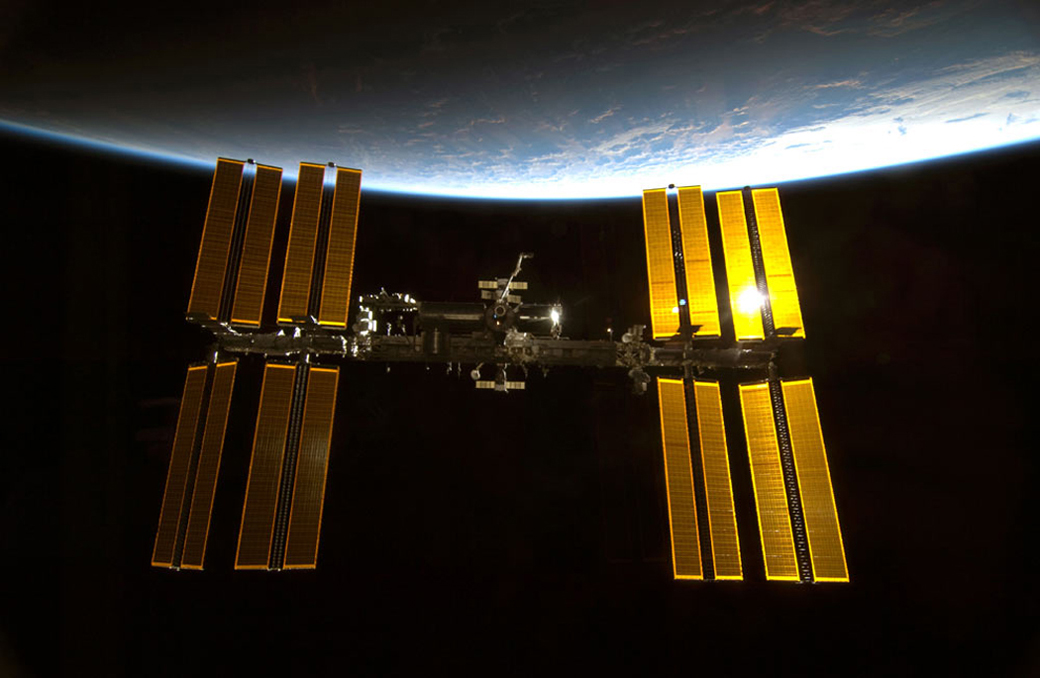
Robotic Russian Supply Ship Docks to International Space Station

An unmanned Russian cargo spaceship successfully docked to the International Space Station this morning (Oct. 29). The docking comes a day after a private rocket in the United States exploded after attempting to launch on a similar resupply run to the orbiting outpost.
Russia's robotic Progress 57 vehicle docked to the space station at 9:08 a.m. EDT (1308 GMT) after a six-hour journey that started atop a Soyuz rocket at the Baikonur Cosmodrome in Kazakhstan. The unmanned capsule delivered close to three tons of supplies to the station's Expedition 41 crew.
Orbital Sciences Corporation's Antares rocket was expected to launch the company's unmanned Cygnus spacecraft on a similar mission to the space station for NASA Tuesday night. However, the Antares exploded moments after launching from NASA's Wallops Flight Facility on Wallops Island, Virginia. Officials are now investigating the root cause of the explosion. [See images of the Antares explosion]
While NASA officials have expressed disappointment in the Antares failure, the six-person crew on the space station still has plenty of supplies onboard, Mike Suffredini, the head of NASA's International Space Station program office said during a news conference yesterday.
Cygnus and Progress spacecraft are two of the many robotic ships that fly resupply missions to the space station. Orbital Sciences and SpaceX currently hold contracts with NASA to make supply runs to the space laboratory. Japan also uses its H-2 Transfer Vehicles to haul cargo to the astronauts and cosmonauts living and working in space.

Follow Miriam Kramer @mirikramer and Google+. Follow us @Spacedotcom, Facebook and Google+.
Get the Space.com Newsletter
Breaking space news, the latest updates on rocket launches, skywatching events and more!
Join our Space Forums to keep talking space on the latest missions, night sky and more! And if you have a news tip, correction or comment, let us know at: community@space.com.

Miriam Kramer joined Space.com as a Staff Writer in December 2012. Since then, she has floated in weightlessness on a zero-gravity flight, felt the pull of 4-Gs in a trainer aircraft and watched rockets soar into space from Florida and Virginia. She also served as Space.com's lead space entertainment reporter, and enjoys all aspects of space news, astronomy and commercial spaceflight. Miriam has also presented space stories during live interviews with Fox News and other TV and radio outlets. She originally hails from Knoxville, Tennessee where she and her family would take trips to dark spots on the outskirts of town to watch meteor showers every year. She loves to travel and one day hopes to see the northern lights in person. Miriam is currently a space reporter with Axios, writing the Axios Space newsletter. You can follow Miriam on Twitter.









